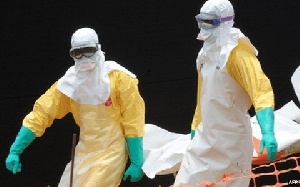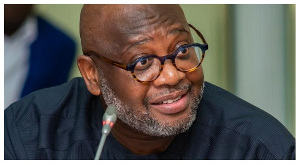The World Health Organization (WHO) has declared Liberia free of the Ebola virus, as the country has had no new cases in 42 days.
Last September, Liberia was seeing 400 cases a week, with hospitals full and bodies lying in the streets.
A public health campaign was launched to stem the epidemic, and the last confirmed death was on 27 March.
The Ebola outbreak has claimed over 11,000 lives in the region, and remains active in Guinea and Sierra Leone.
But new cases have been falling and the UN's Ebola envoy, David Nabarro, called progress against the disease in West Africa "extraordinary".
He warned however that it would take time to eliminate the outbreak completely. At the scene: Jonathan Paye-Layleh, Monrovia
President Ellen Johnson Sirleaf expects her counterparts in Guinea and Sierra Leone to call to congratulate her on her victory over a disease that swept through the region, killing over 4,000 people in her war-recovering country alone.
Officials say it was collective effort and resilience that eventually conquered Ebola.
Ms Sirleaf is celebrating. She is due to take a bus tour around the capital thanking healthcare workers and community people in a victory parade.
She also indicated how traumatised she and the nation remain. "Even today if you hear an ambulance siren you shake a little bit," she said.
The WHO regards a country Ebola-free after a 42-day period without a new case - twice the maximum incubation period.
But even though Liberia has been declared free of the virus, correspondents say the outbreak will have a long-term impact, having damaged Liberia's already fragile economy.
The organisation is warning against complacency. It has been criticised for ignoring warnings about the potential danger of the outbreak and not responding quickly enough.
Of the West African countries hit by Ebola, Liberia has seen the most deaths.
With international help, Ebola care centres and hand washing stations were set up to try to halt the disease, which is spread through contact with sick people.
Billboards were put up with slogans like "Ebola is real", "wash your hands and don't touch" and "don't be the next victim".
Health News of Saturday, 9 May 2015
Source: BBC

















